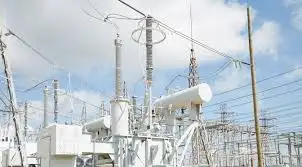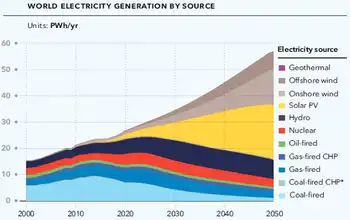Toshiba looking more to renewables
Despite the setback to its nuclear business, Toshiba said it aims to more than double its operating profit to 500 billion yen by the year to March 2014.
Engineers are battling to bring the Fukushima nuclear plant northeast of Tokyo under control more than two months after a 9.0 magnitude earthquake and tsunami devastated a swathe of Japan's coastline.
The incident has fueled public opposition to nuclear power in some countries and will likely lead to a tightening of safety regulations. Germany has already moved to close older reactors, while other governments have launched safety reviews.
"If everyone around the world is against nuclear power, there is no point in us saying it is a pillar of our strategy," Toshiba President Norio Sasaki told reporters. "But it is going to take some time to work out exactly what the environment is."
Orders for four AP1000 reactors in China are on target, but approval delays in the United States and other countries could delay by 2-3 years the firm's goal to expand nuclear sales to 1 trillion yen US $12.2 billion and 39 reactor orders by March 2016, Sasaki said.
He added that the company's direct checks with customers had not yet found any planning to change their orders.
Toshiba, which has set up a 1,900-person team to help operator Tokyo Electric bring the plant under control, also said it will tap 700 billion yen of its funds to build new revenue streams and invest in its flash memory chips, batteries, smart grids and production in emerging markets.
Toshiba has been trying to lower its dependence on nuclear power for growth by investing in solar and other renewable energy sources, next-generation batteries and smart grids.
It now targets sales of 350 billion yen in solar, hydroelectric, geothermal and wind power technologies, 900 billion yen in smart grid products and 800 billion yen in low-power consumption motors, inverters and batteries.
The industrial conglomerate's strategy will expand the company's 2011-2013 capital and research-and-development budget to 1.45 trillion yen, up from 1.3 trillion yen in 2010-2012.
Toshiba said it was aiming for 500 billion yen in operating profit in the year to March 2014 on forecast sales of 8.5 trillion yen, compared with operating income of 240.3 billion yen in the year that ended in March 2011.
The announcement pushed its shares up 2.1 percent, compared with a 0.2 percent rise in the benchmark Nikkei average.
"The figures are pretty ambitious," said analyst Shuichi Ide of Mizuho Securities. "But I do wonder whether sales will rise that far. Will they be able to sell as many televisions and computers as they forecast?"
The company, whose products run the gamut from rice cookers to gas turbines, announced it would buy unlisted Swiss smart-meter manufacturer Landis+Gyr for around $2.3 billion.
Smart meters are an essential element of smart grids, which are being eyed by utilities and governments around the world as a means of saving energy and cutting carbon emissions.
They are designed to accommodate a range of generation options, including renewables, and to provide customers and utilities with more real time information, enabling them to manage usage and supply more efficiently.
Sasaki said the company still needed to beef up its cloud computing capabilities in order to compete in smart grids.
Toshiba announced an alliance with South Korean wind power firm Unison Co. The Japanese firm will buy some 3 billion yen in Unison convertible bonds as the first step of the deal and the Nikkei newspaper reported it would raise its stake to about 30 percent in about a year.
Toshiba also said it plans to boost output at a lithium ion battery plant in Kashiwazaki, Niigata Prefecture, in anticipation of higher demand for use in smart-grid systems.
Related News

California avoids widespread rolling blackouts as heat strains power grid
LOS ANGELES - California has avoided ordering rolling blackouts after electricity demand reached a record-high Tuesday night from excessive heat across the state.
The California Independent System Operator, which oversees the state’s electrical grid, imposed its highest level energy emergency on Tuesday, a step that comes before ordering rolling blackouts and allows the state to access emergency power sources.
The Office of Emergency Services also sent a text alert to residents requesting them to conserve power. The operator downgraded the Stage 3 alert around 8:00 p.m. PT on Tuesday and said that “consumer conservation played a big part in protecting electric grid…





